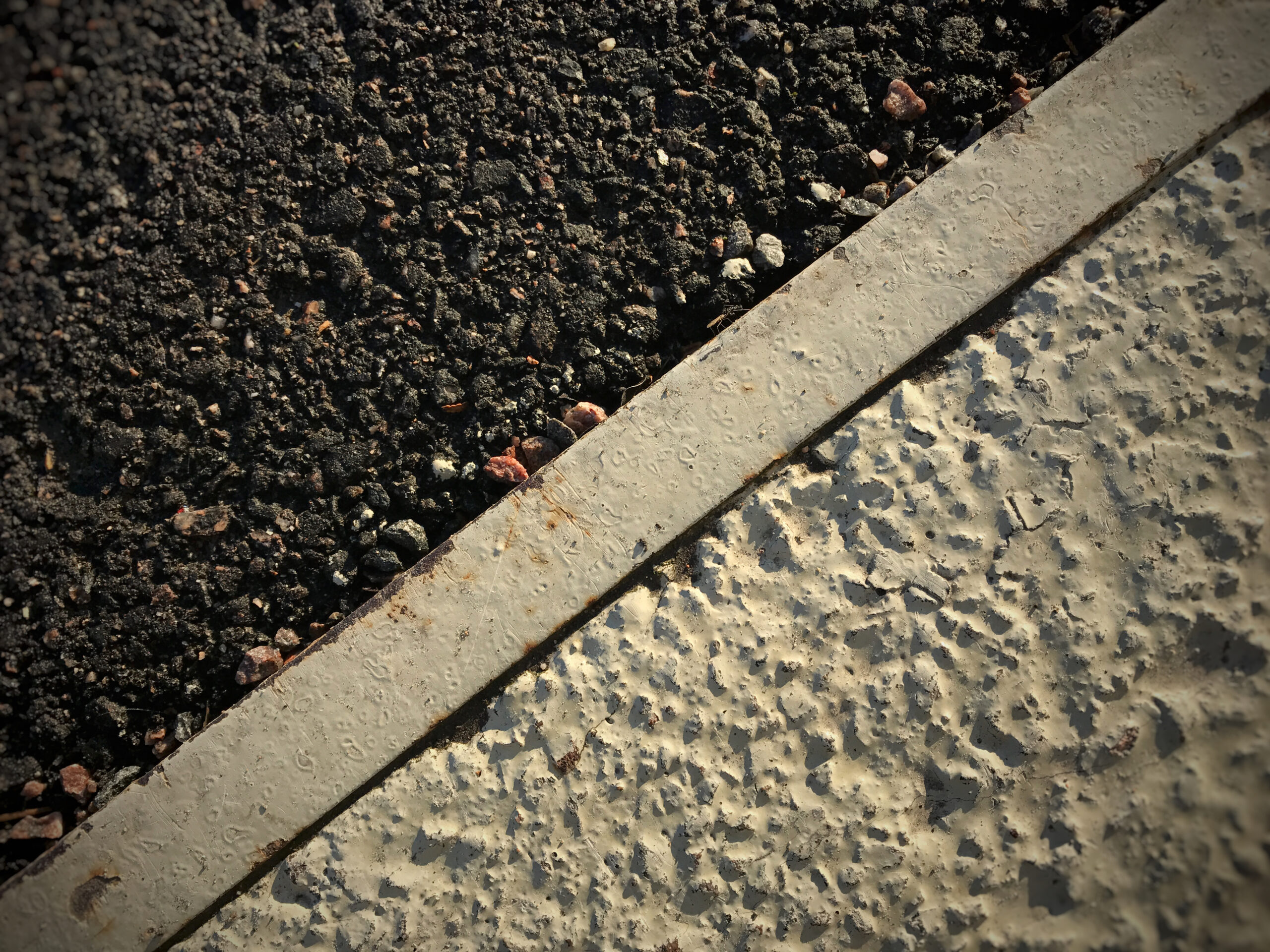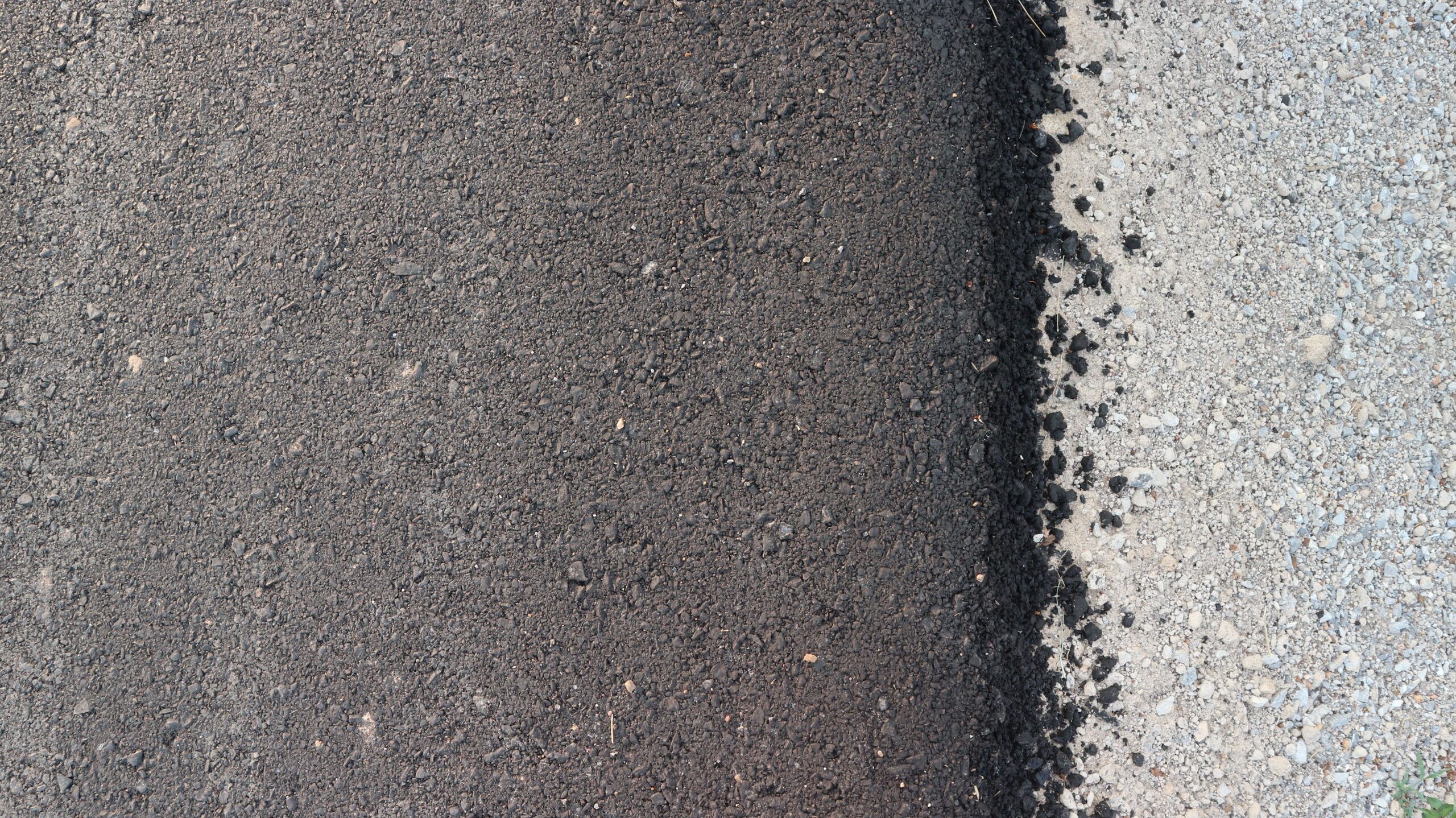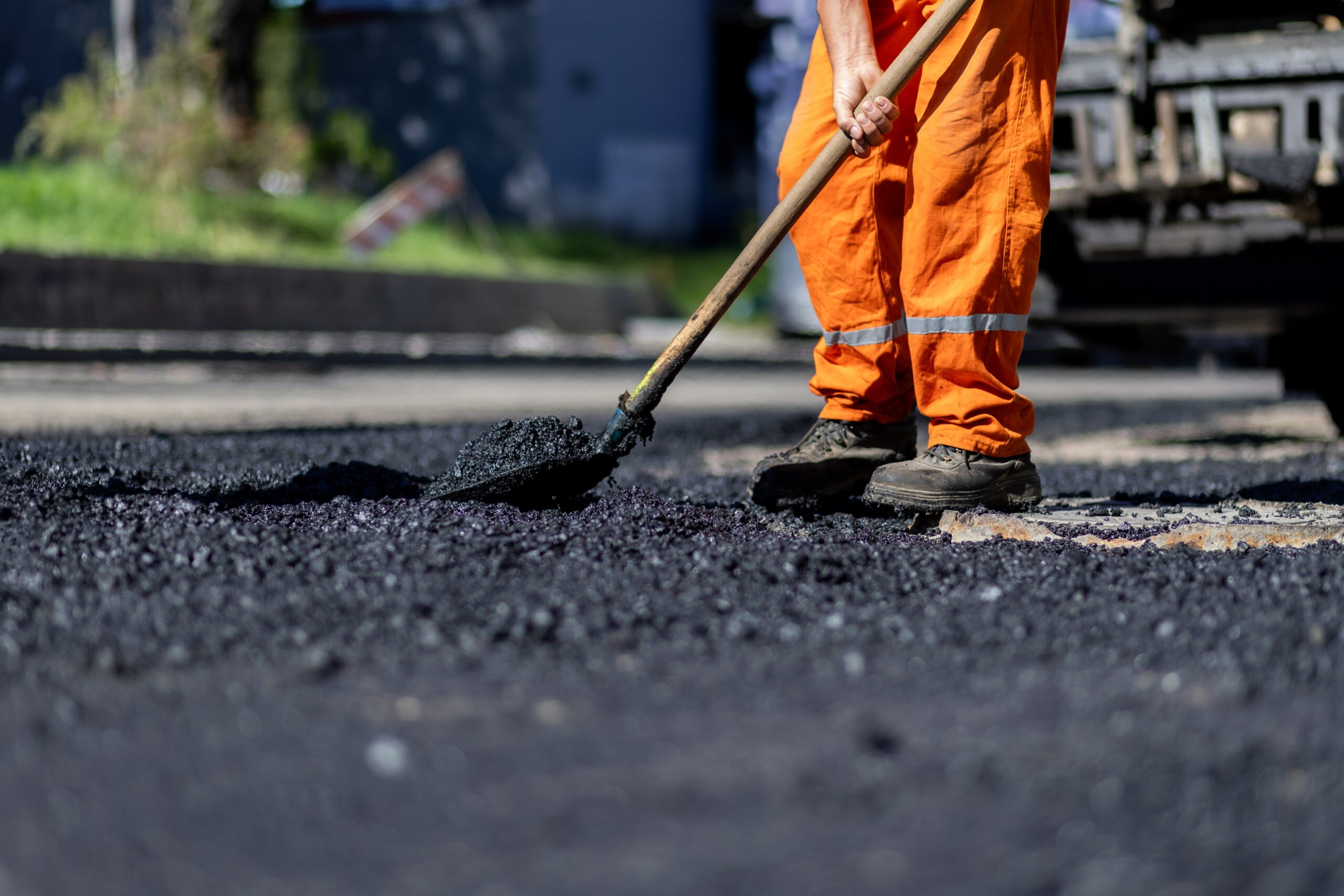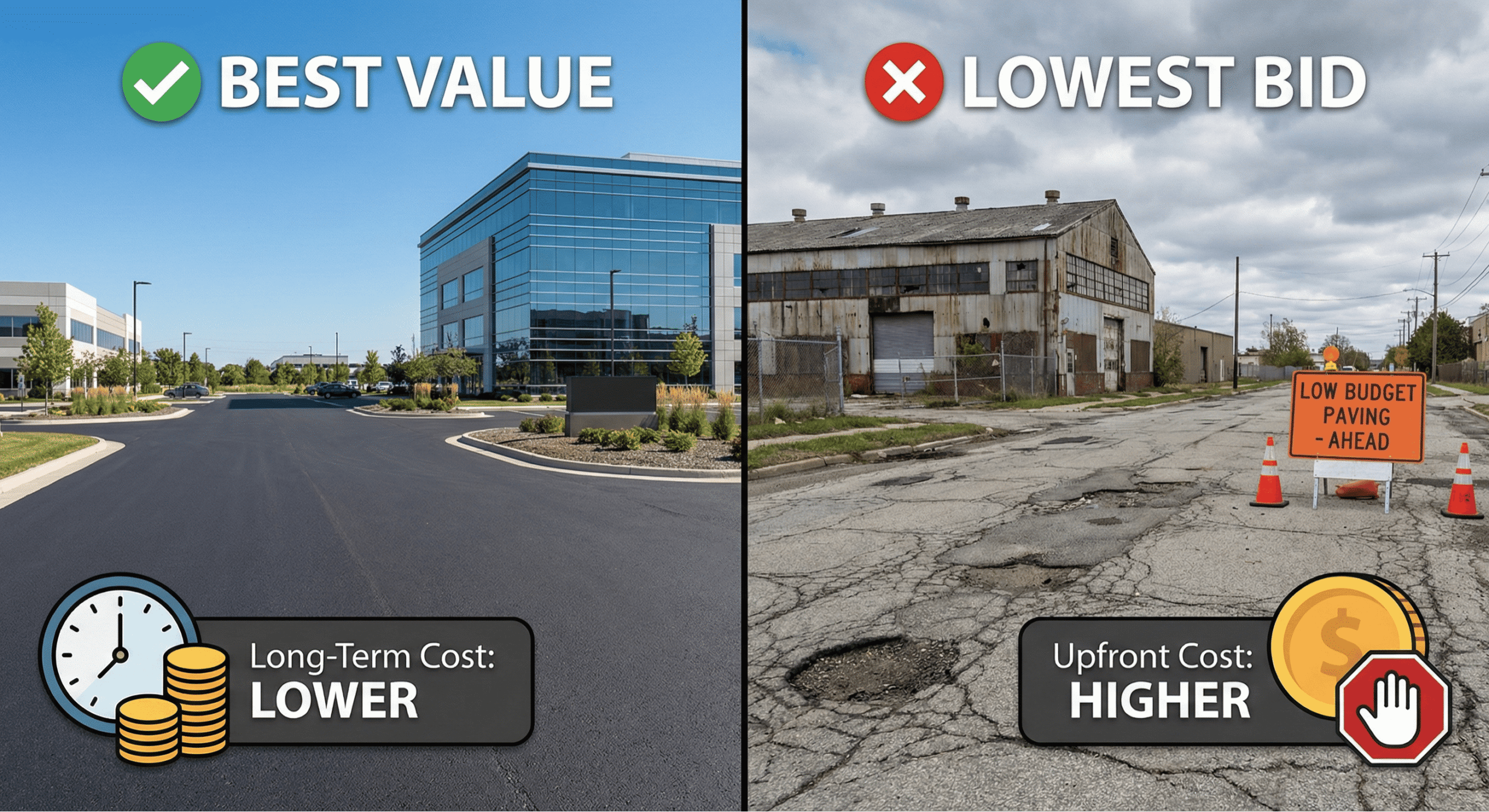
Asphalt and concrete are the two most widely used paving materials for driveways, parking lots, and industrial surfaces. Each material offers distinct benefits in terms of cost, durability, and maintenance making asphalt or concrete: how to choose the right surface for your project is a significant investment decision for property owners.
According to data analyzed from the Federal Highway Administration (FHWA), over 90% of U.S. paved roads are surfaced with asphalt or concrete, with asphalt covering about 94% nationally and 85% in Louisiana. This widespread use underscores their proven durability in diverse climates, including regions challenged by heat, humidity, and hurricanes.
Understanding the strengths and limitations of each material is essential before starting a project. In this guide, you will learn the fundamental differences between asphalt and concrete.
Understanding the Basics of Asphalt vs. Concrete
Now that we’ve explored the key characteristics of both materials, let’s dive deeper into how they perform in specific climates, particularly in the context of how weather and temperature impact asphalt paving quality, which is critical for Louisiana’s unique environmental challenges.
What is Asphalt?
Asphalt is a petroleum-based pavement material consisting of aggregates and bitumen, widely used due to its flexibility, dark color, and ease of installation. It is favored for roads, driveways, and parking lots because it is cost-effective and recyclable. The FHWA recognizes asphalt’s adaptability to temperature variations and notes that asphalt pavements can incorporate reclaimed asphalt pavement (RAP) materials, enabling recycling rates that contribute significantly to sustainability efforts.
What is Concrete?
Concrete is a cement-based material composed of cement, water, and aggregates. It is light-colored, highly durable, and offers extensive design versatility, including stamping and staining. Concrete requires longer curing times but can last significantly longer than asphalt. According to the Portland Cement Association (PCA), concrete pavements can have a service life of 30 to 50 years with proper maintenance.
What Are The Key Factors to Consider
When deciding between asphalt and concrete, several key factors must be considered. Let’s take a closer look at how cost, installation time, durability, maintenance, and aesthetics compare between the two.
Cost
- Asphalt: Costs range from $3 to $6 per square foot, making it a budget-friendly option. For a 500 sq ft driveway, this can save thousands compared to concrete.
- Concrete: Typically costs between $6 and $12 per square foot, with decorative finishes increasing the price.
Installation Time
- Asphalt: Can be installed in 1–2 days and is drivable within 24–48 hours.
- Concrete: Requires 7–10 days to cure fully, with weather conditions significantly affecting the timeline.
Durability
- Asphalt: A study cited by the Illinois Asphalt Pavement Association notes that asphalt pavements, with proper maintenance, can last up to 20 years. Asphalt’s flexibility helps resist damage from freeze-thaw cycles, but it generally has a shorter lifespan than concrete..
- Concrete: The Michigan Department of Transportation reports concrete pavements typically last around 27.5 years before repairs are needed, significantly longer than the 15.5 years typical for asphalt. Research funded federally shows that concrete interstate highways can last about 2.5 times longer than asphalt highways. Specialized concrete pavement designs in extreme climates demonstrate expected service lives exceeding 60 years with minimal maintenance.
Maintenance
- Asphalt: Requires resealing every 3–5 years, costing approximately $100–200 per application. Repairs are generally more straightforward and less expensive.
- Concrete: Needs occasional cleaning and sealing every 5–7 years. Repairs tend to be more costly and complex.
Aesthetics
- Asphalt: Provides a sleek, dark finish with limited tinting options.
- Concrete: Highly customizable with staining, stamping, and decorative finishes.
What Are The Best Applications for Your Project

Understanding the right material for specific uses is crucial. Let’s explore the best applications for asphalt and concrete in different settings, from residential to industrial projects.
Residential Driveways
- Asphalt: Offers a cost-effective, quick-install solution for homeowners on a budget.
- Concrete: Provides durability and customization options for high-end homes seeking enhanced curb appeal.
Commercial Parking Lots
- Asphalt: Preferred for faster installation and minimal business disruption, especially in industries requiring frequent maintenance.
- Concrete: Better suited for heavy truck traffic and industrial facilities requiring long-term durability.
Industrial Uses
- Asphalt: Ideal for transportation hubs and facilities requiring frequent maintenance.
- Concrete: Favored for heavy-duty surfaces such as precast concrete structures and loading docks.
What Are The Environmental and Practical Considerations
In addition to performance and cost, environmental and practical factors should also influence your decision. Let’s examine the ecological impact and practical considerations of asphalt and concrete.
Environmental Impact
- Asphalt: Asphalt is highly recyclable, with reclaimed asphalt pavement (RAP) commonly reused in new mixes, reducing waste and resource consumption. However, it is petroleum-based, leading to environmental concerns related to fossil fuel extraction and greenhouse gas emissions, as mentioned in the research.
- Concrete: According to research published in a scientific journal, Concrete production generates significant CO2 emissions primarily from cement manufacturing, contributing to a high carbon footprint. Concrete recycling is possible but less widespread and complex compared to asphalt recycling due to its solid structure and use in large slabs.
Noise and Comfort
- Asphalt: Quieter and smoother for vehicle traffic, enhancing comfort.
- Concrete: Tends to be louder and less noise-dampening.
Making the Right Choice & Maintaining Your Surface
Once you’ve weighed all the factors, making an informed decision and maintaining your surface is essential for long-term satisfaction. Here are some key considerations for choosing the right asphalt mix and ensuring its longevity.
Choosing the Right Material
The Federal Highway Administration (FHWA) states that material selection depends on factors including budget, project timeline, traffic loads, and climate. Asphalt is preferred for quick, cost-effective projects, while concrete suits heavy-load, long-life applications.
The Importance of Base Preparation
Proper base prep is critical for preventing failure. The Portland Cement Association (PCA) emphasizes preparing an even subgrade, removing vegetation, and using stable granular bases like gravel and sand to avoid cracking and settling.
Maintenance Tips
- Asphalt: Reseal every 3–5 years and repair cracks promptly to extend lifespan.
- Concrete: Clean regularly and seal every 5–7 years to prevent staining and surface damage.
Which Paving Material is Right for You?
Choosing between asphalt and concrete depends on your budget, timeline, and specific use case. Asphalt offers cost-effectiveness, quick installation, and flexibility suited to Louisiana’s climate, while concrete provides unmatched durability and customization for long-term projects.

For expert advice and quality installation tailored to Louisiana’s unique environment, contact Asphalt Coatings Company at 337-824-ROCK for a free consultation or visit their Jennings, LA office. Your next paving project deserves the best solution for lasting performance.



